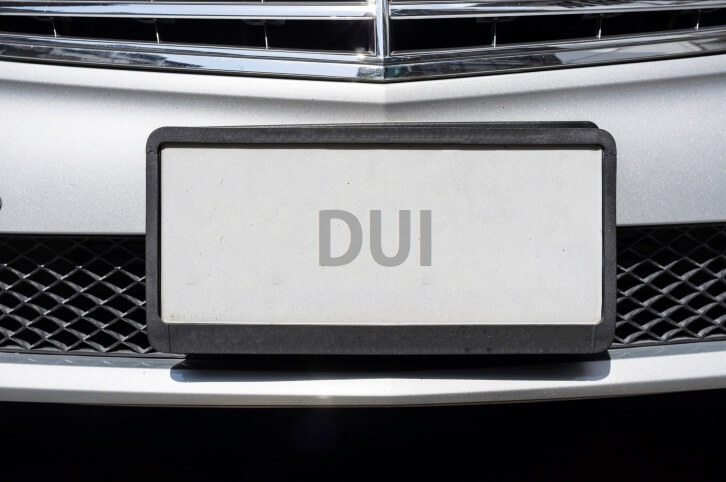
DUI License Plates: Drunk Drivers Aren’t Anonymous
There’s no doubt a DUI conviction can change a person’s life – whether it’s the fines, surcharges and court costs, the potential jail time or the impact of having a conviction when it comes to applying for jobs or housing. At least the fact of getting that conviction wasn’t something that had to be announced to every family member and every friend.
But that anonymity has disappeared in a few states that have passed laws requiring drivers convicted of impaired driving to use special license plates. The plates make it clear that the owner of the car recently was convicted of drunk driving, reckless driving or a similar charge.
If it sounds a lot like the “Scarlet Letter” – the 1850 novel by Nathaniel Hawthorne about a woman who commits adultery and is forced to wear the letter “A” on her clothing. That’s exactly the idea. Perhaps some drivers will be more careful to avoid the shame of driving around with license plates different than any others on the road. Several states currently require so-called “shame plates,” and up to 8 states – from Louisiana to New York – considered the idea from 2010 to 2013 without being able to work out the details.
Here’s how drunk driver plates are handled by 3 states:
Ohio
The state was the first to require special plates for drivers convicted of DUI offenses. The law was passed in 1967, and though enforcement fell off over the years, new attention to the problem of drinking and driving led to more robust enforcement beginning in 2004. Only a first offender with a blood alcohol concentration reading below .17 can avoid the special plates. They are yellow, with red letters, and must be used during the length of an individual’s driver’s license suspension. If someone has more than one vehicle, the special plates must be on every vehicle. The penalty is a fine of up to $1,000 and up to 6 months in jail.
Minnesota
A person convicted of DUI will have his or her normal license plate impounded if their blood alcohol concentration was .16 or higher or if they have had at least two drunk driving convictions within a 10-year period. Also, a drunk driver with a minor under the age of 16 in the vehicle, or a drunk driver operating a vehicle without a valid license can have a license impounded. If the drunk driver was in someone else’s car, that license plate still will be impounded, as well as drunk driver’s license plate. The impoundment period is usually one year, and the special license plate contains different letters and numbers – but the first letter is always a “w.” That’s why many Minnesotans refer to the DUI plate as a “whiskey” plate.
Georgia
Once a driver in Georgia is convicted of a second DUI within a five-year period, the court will order that license plates for all vehicles registered to the driver be surrendered. During the period of time that the offender’s driver’s license is suspended, the only way to receive a restricted license is to apply for a special license plate with a series of numbers and letters that are identifiable to law enforcement officers. Once driving privileges have been suspended, the offender can apply to state DMV officials for a new license plate.